Rhythm, Attention and Belonging: Why Timing Matters More Than Effort in Learning
Rhythm, attention and belonging shape how learning unfolds. Explore why timing matters more than effort for focus, fluency and engagement in classrooms.
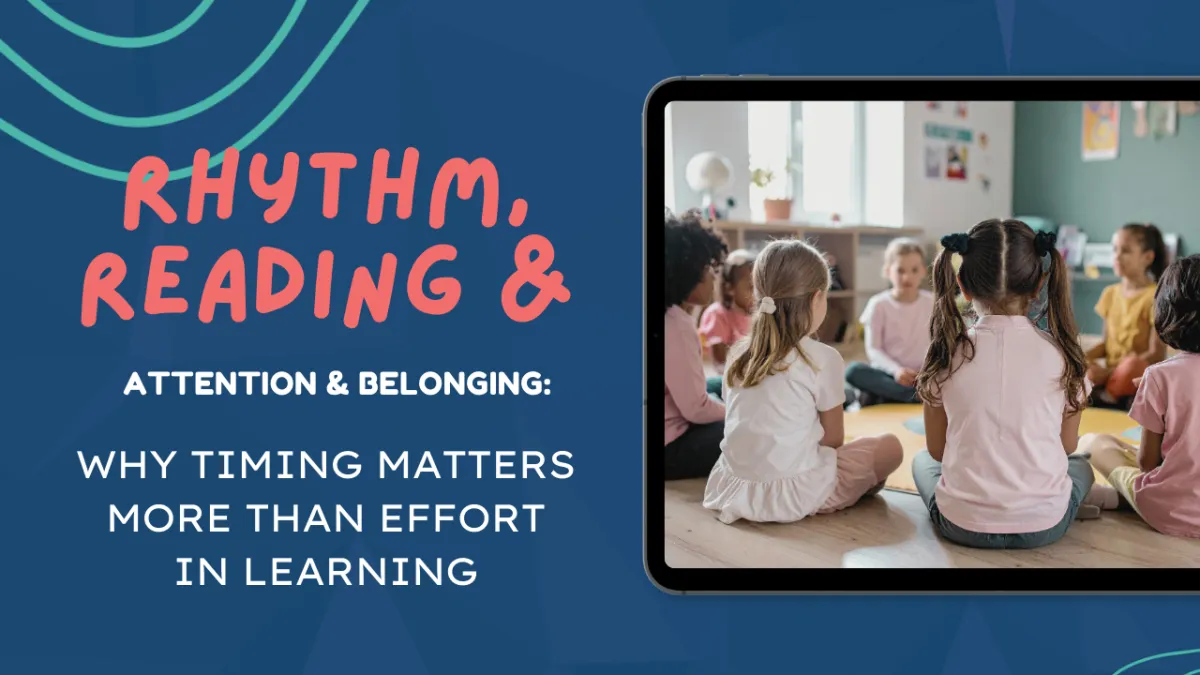
Rhythm, attention and belonging shape how learning unfolds. Explore why timing matters more than effort for focus, fluency and engagement in classrooms.
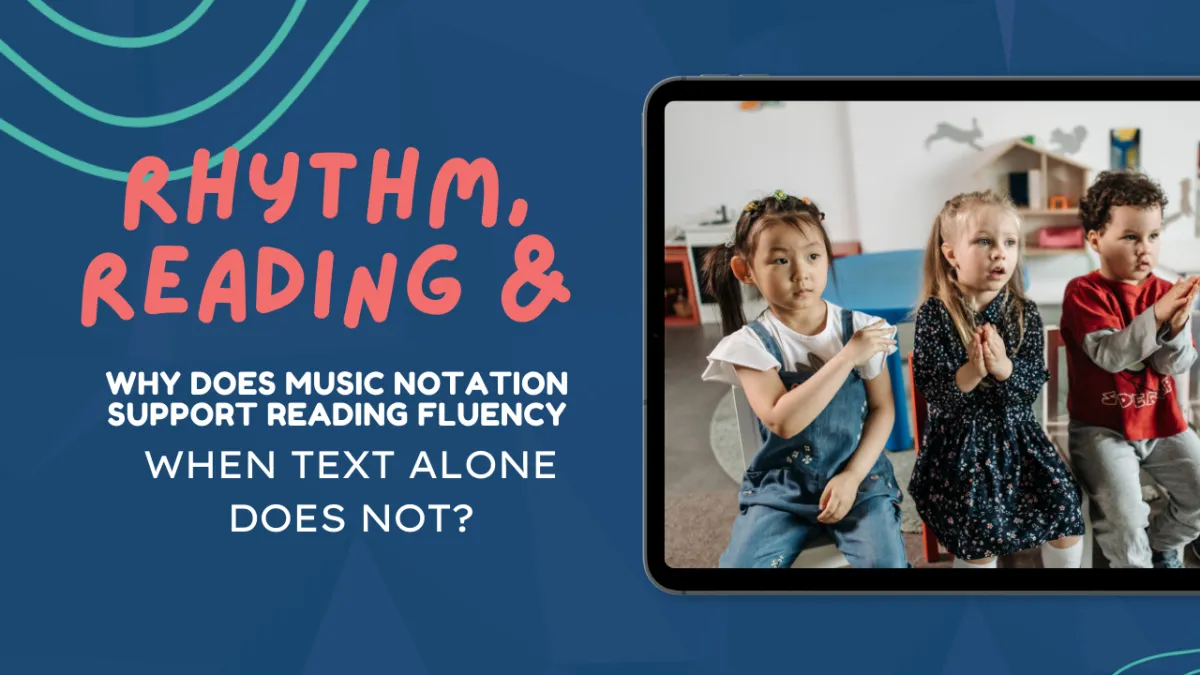
How musical notation makes rhythm visible, supporting attention, prediction and reading fluency. Explores neuroscience, timing and learning.
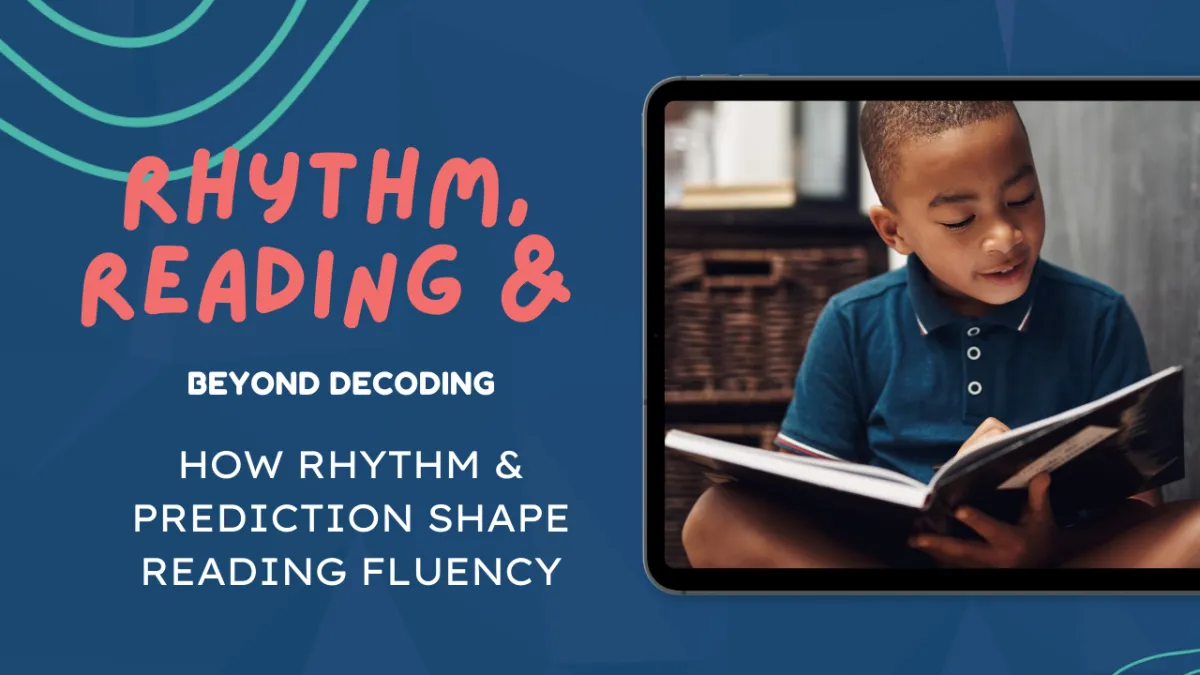
Reading fluency relies on neural timing, rhythm and prediction. Explore how anticipation and entrainment shape language, reading and flow.
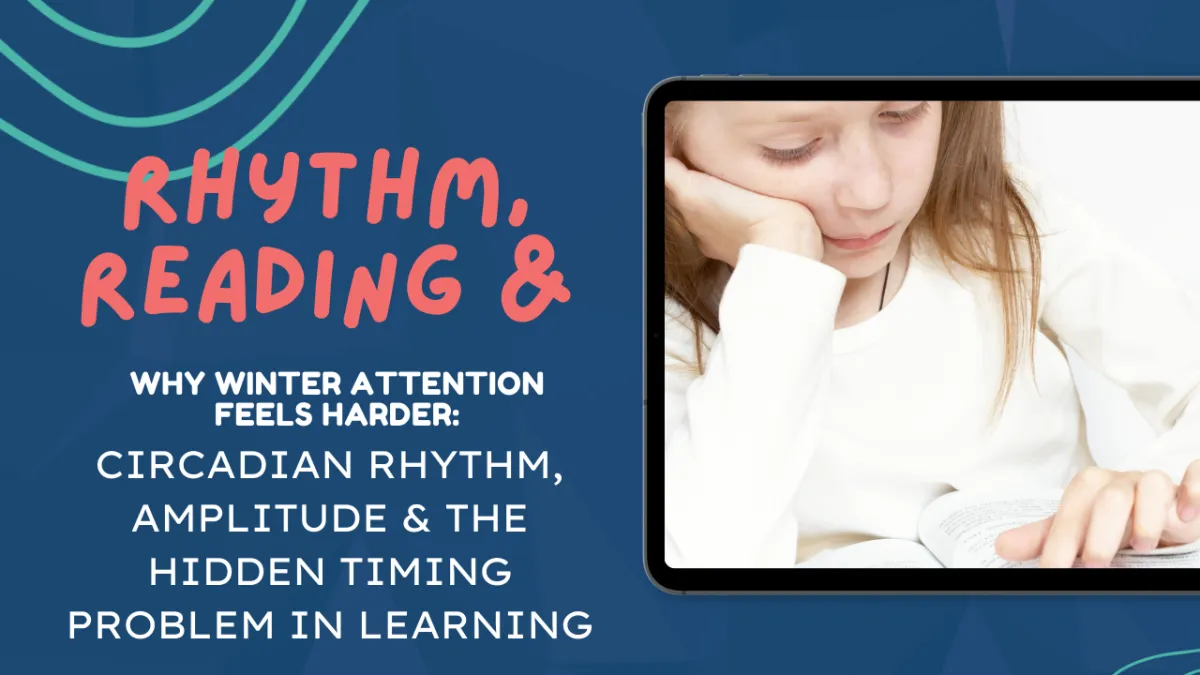
Winter attention is harder for biological reasons. This post explores circadian rhythm, amplitude and the hidden timing problem in learning and reading.
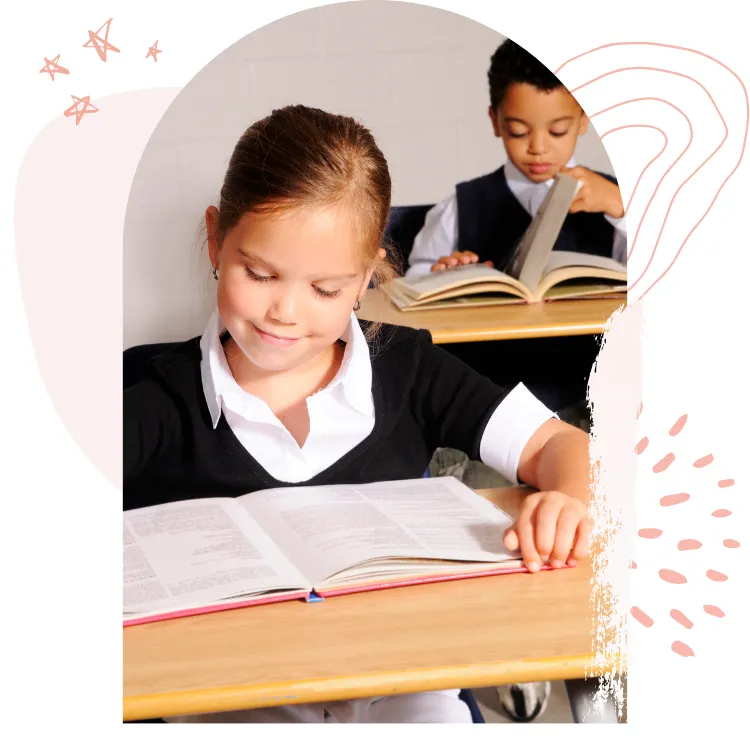
“It’s only an hour that they have with you over the time that you come in over the six weeks and for it to be able to make, for a lot of them, up to a year’s difference in their reading ability is quite amazing really.” Year 3 teacher
© Copyright 2025 Rhythm for Reading Services Ltd All Rights Reserved. - Privacy Policy - Terms & Conditions